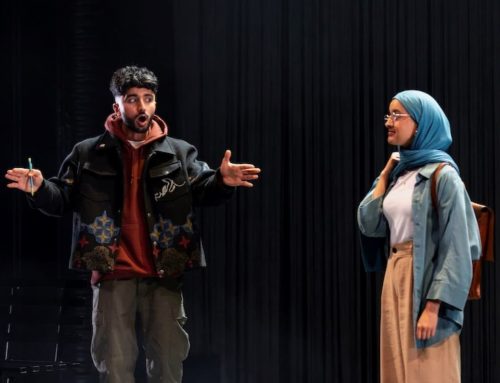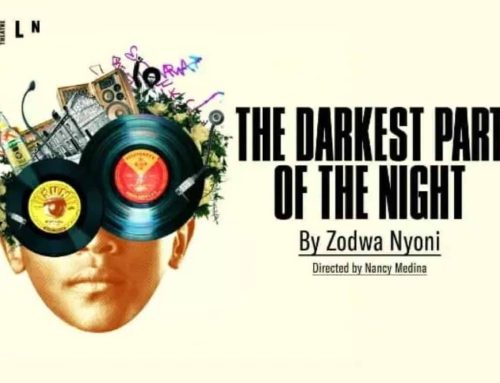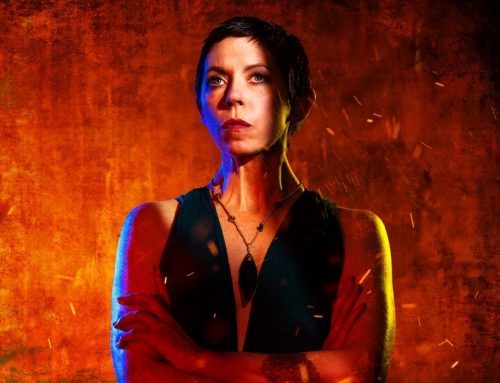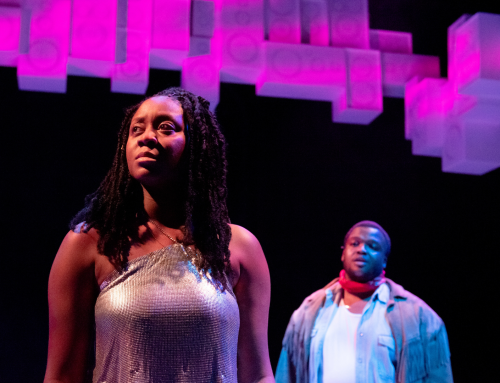“What a queer bird the frog is” performers Toby Park and Aitor Basauri chant at the outset of The Frogs, the latest production from fabled physical theatre and comedy ensemble Spymonkey. It is certainly a curious beast: part meta-comedy, part Greek theatre reimaged, and part on-stage exercise in bereavement counselling. The show’s extended trigger warning includes “themes of death, grief and existential angst” alongside “scenes of excessive spanking, tap-dancing and drug-induced hallucination after licking a frog”. Anticipate an odd creation. “This is theatre, anything’s possible” Basauri says at one point, and he means it. Whatever The Frogs is, it is often very funny indeed.
Spymonkey used to comprise four performers. Now there are two, Park and Basauri, who are mourning the death of one of their erstwhile fellow, Stephan Kreiss, and the loss of another, Petra Massey, to a Les Vegas residency. The duo are attempting to reinvent themselves as a classic vaudeville double-act; a kind of Spymonkey 2.0. The reinvention requires not just a new way of working together (they imagine becoming a kind of “Jeeves and Wooster but less privately educated”), but also the processing of grief and, for both men, facing up to some deep-seated fears. There is enough here for an entire series of TV reality show In Therapy.
Eccentric Hollywood billionaire producer Patty Getty (a tremendous Jacoba Williams who plays a host of other roles) calls. She wants to fund an “epoch-defining version” of Aristophanes’ 405 BCE literary comedy The Frogs, and who better than Spymonkey to create it. The play, the oldest surviving comedy in the canon, tells the story of Dionysus (Park in sublimely funny form), Greek deity of wine, revel, and theatre. The god himself is in mourning, in his case for the death of his favourite tragedian Euripides.
Accompanied by his slave Xanthius (Basauri armed with a mop and baggy underpants) and disguising himself as the hero Heracles, Dionysus goes down to the Greek underworld Hades to bring Euripides back to the land of the living. Along the way they encounter an array of opposing gods, monsters, and spectral creatures. There is a parallel here. Dionysus’ quest echoes Park and Basauri’s own desire to bring Stephan and Petra back from the underworld, or at least find their own renewed route to comic creation.
But can Spymonkey 2.0 “make this 3000 year old play funny” and, without Petra and Stephan, are the duo just “two old white men” trying to be hilarious? “It’s a damn long way to Hades, just like this scene” says Xanthius at one point. The men have their work cut out and rarely hold back. Trapped inside a play inside a play what follows is an onstage crisis of confidence, set to a backdrop of zippy one-liners, innuendoes, fourth wall ripping double-takes, jokes about hard-working asses, satire, slapstick, and faux musical theatre. Toby must face up to his existential fear of success and Basauri to his dread of endings, for which read his own death.
There is a lot, perhaps too much going on here. High from having licked frogs in order to gain entry to Hades, the enslaved Xanthius tells us he want to “press pause on all the voices in my head.” It is a piece of advice one wishes writer Carl Grose and director Joyce Henderson would follow. The duo’s over-acting causes a rip in the space-time continuum which results in random scenes from other productions, including A Streetcar Named Desire, intersperse themselves into the narrative. Williams begins a faux Ted talk on how to construct theatrical humour. All of it is funny yes, but occasionally one struggles to keep up with the detours. “The comedy will dry up a bit now” the slave says at one point and sporadically he is right. Periodically it is all just a little too anarchically frantic.
Lucy Bradridge’s costume design is inspirational. Dionysus boasts platform sandals the size of breeze blocks. Williams’ Heracles is suited up as a naked muscle-bound beach dude with an impressively crafted appendage. The frogs appear robed in neon yellow cagoules. A revolving circular dais provides ample opportunities for cleverly put together physical comedy.
Underneath the mania, The Frogs is a brave and sometimes brutally dark self-revelatory work about redemption, moving on, and the difficulty of dealing with change. Park and Basauri are immensely likeable and immeasurably talented, and their grief feels heartfelt. Some of the theatrical edges here are roughhewn, but Spymonkey 2.0 feels anything but reduced.
Writer: Carl Grose
Director: Joyce Henderson
More Recent Reviews
Playfight. Soho Theatre.
Writer Julia Grogan’s breathtakingly assured debut play arrives at Soho Theatre following stellar reviews at the Edinburgh Fringe and [...]
All The Happy Things. Soho Theatre.
Naomi Denny’s three-hander comedy-drama All The Happy Things covers familiar themes within a recognisable premise. A grieving protagonist comes [...]
Telly. Bread and Roses Theatre.
The challenge with absurdist comedy is that many people do not find it funny. Laughing at the sheer weirdness [...]






